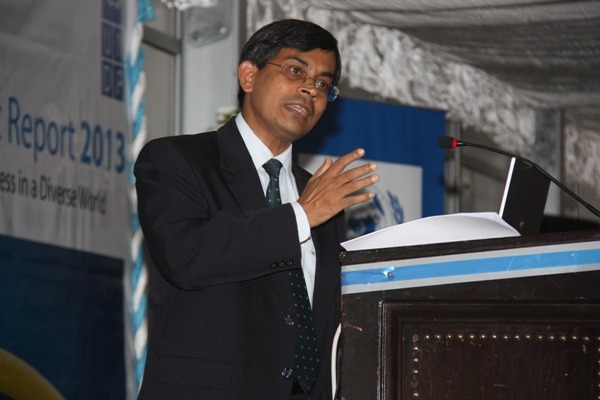
UNITED Nations Development Programme (UNDP) Zimbabwe economic advisor, Amarakoon Bandara, has challenged other sectors to help jumpstart the economy, saying agriculture alone would not make much impact given the size of the population.
BY TATIRA ZWINOIRA
“Say for example, we have 70% of the population in the rural areas. That basically gives priority to the rural areas where development will be key as it will also create employment. But, if you know a bit of economics, then you will see that agriculture alone is not enough to go far beyond. There are some contractual constraints to the agricultural sector,” Bandara said during a Global Shapers Community (GSC) Harare hub engagement forum in Harare last week.
“You have a $500 per capita income from agriculture. You may be able raise it to $1 500 or $2 000 but not beyond that because even the best production innovations, arrangements and all the government can do there is a limit on where the agricultural sector can go in terms of development. The benefits you can reap from agriculture are very limited.”
However, he said it was a sure way of reducing poverty and employing the unemployed youth.
“That also means you need to think about going beyond agriculture. As I said, 70% are in the rural areas so that means there is excess labour. You need to think about the way of getting them out, gradually transform them from agriculture to industry and services. It won’t happen automatically. First thing is that you need to have education and skills,” Bandara said.
“In this case, education is there and technology may not necessarily be there that is when we need to have an education that caters to those needs, of the private sector which runs businesses, the firms and industries. The educational sector needs to cater to that and skills are needed for those opportunities.”
In 2017, out of the 5 611 809 economically active persons in the country 3 121 851 were employed in the agricultural sector showing that most people find it easier to eke a living from agriculture.
- Chamisa under fire over US$120K donation
- Mavhunga puts DeMbare into Chibuku quarterfinals
- Pension funds bet on Cabora Bassa oilfields
- Councils defy govt fire tender directive
Keep Reading
But, with a youth population of 4 612 727 recorded in the age bracket of between the ages of 15 to 34, government has been encouraged to focus on other areas.
World Economic Forum community and social engagement specialist to the Middle East and Africa Abdullahi Alim said tech was where youths needed to position themselves.
“I think first and foremost we are in a new industrial age that is tech savvy and a lot more tech centred so I think that in itself is a strong skill to prioritise at present. But, also, I think soft skills around critical thinking and complex problems like knowing how to unpack complex problems which though sound like old age skills are significantly undervalued in our current education system,” he said.
“Looking at what the market is doing at the moment which is becoming more tech-centred is an important move but not at the same time neglecting those soft skills that are undervalued in our education systems.”
He said it was important for the youth to seek skills such as tech which are according to the times to be able to adapt as quickly as the market and society. This comes as the President Emmerson Mnangagwa-led administration has pegged the economic revival of the country on the agricultural sector.











